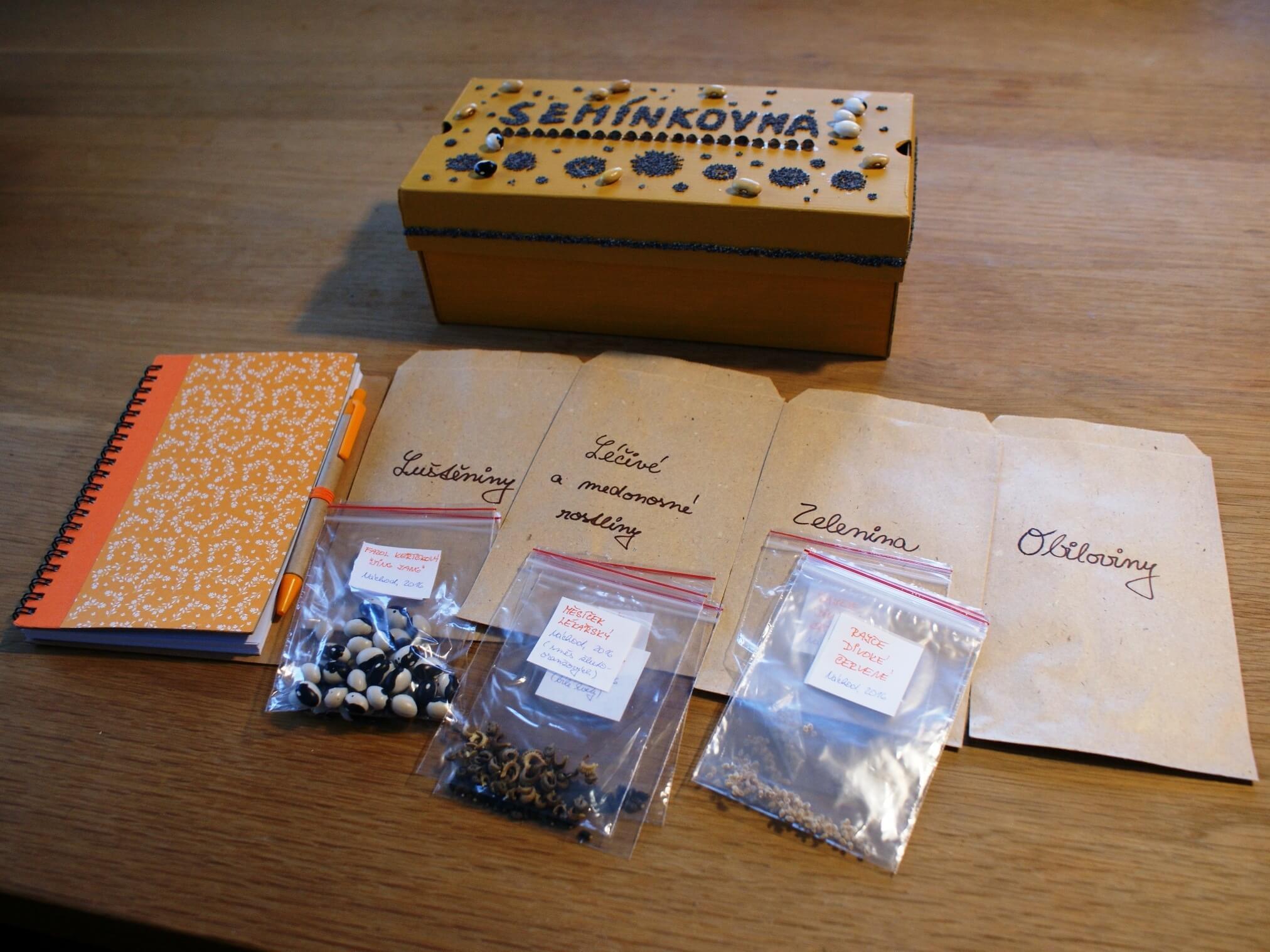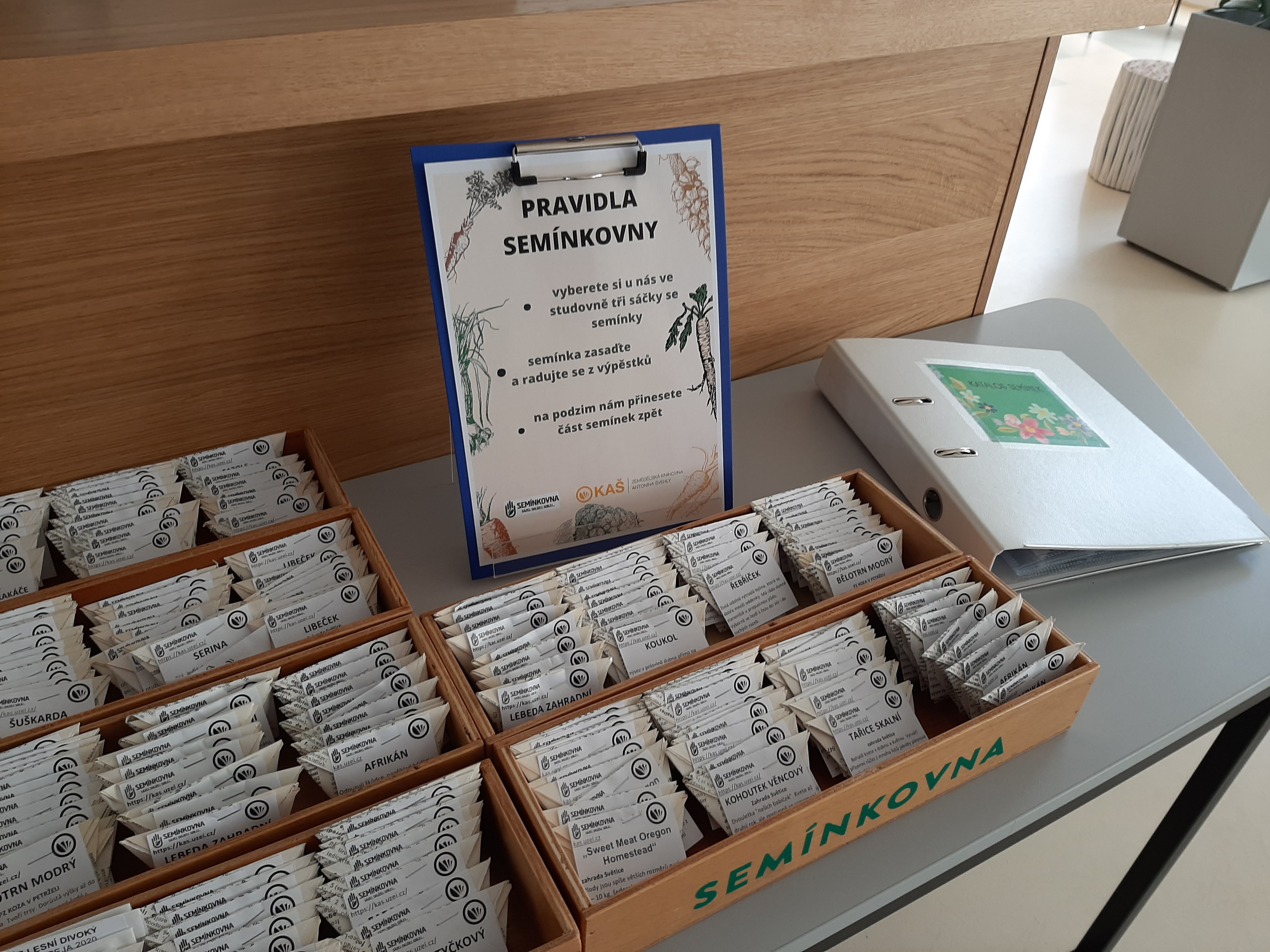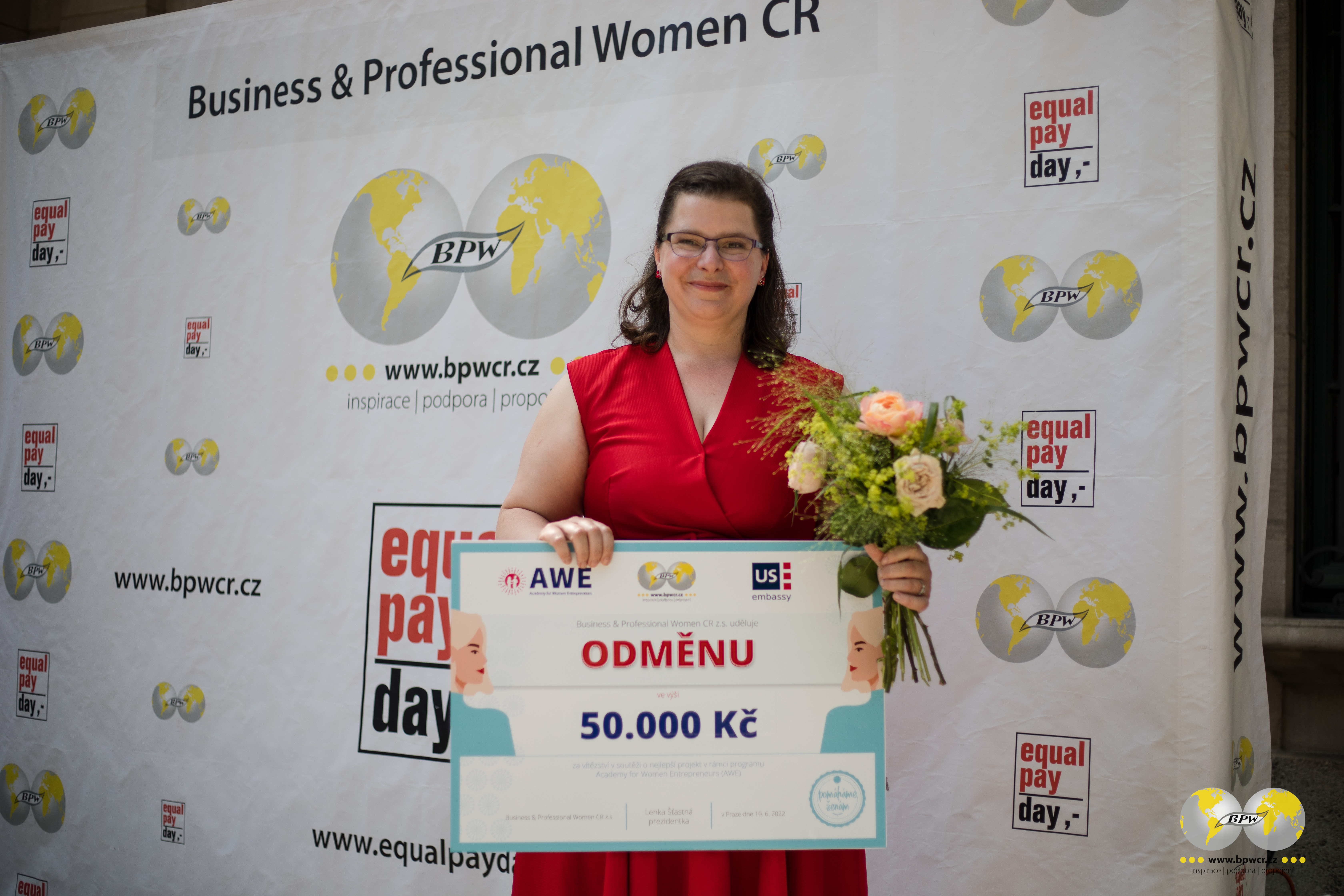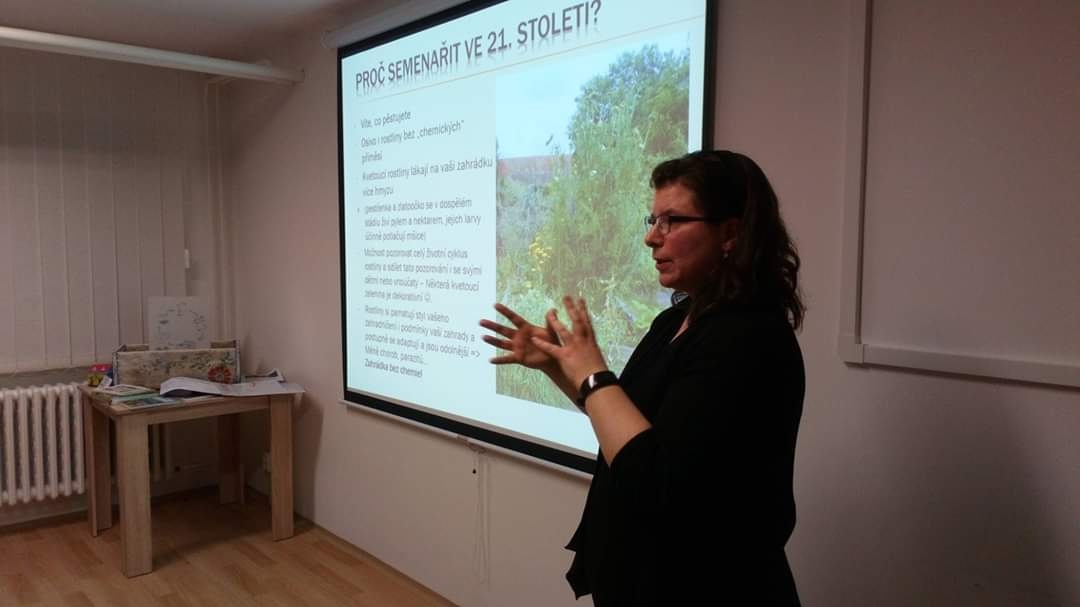Seeds represent life as they are at the basis of food production in agriculture. Seeds require genetic diversity which allows crops to evolve together with the changing environment and climate. This diversity, however, has been subject to erosion for decades leading to the loss of traditional crop varieties and traditional knowledge related to the cultivation of those varieties. In a conversation with DevelopmentAid, the seed-saver and founder of the Czech seed library network, ‘Seminkovna’, Klara Hrdá, shared her insights about the importance of local seeds and knowledge development in seed-saving and seed-sharing – activities that were once common and are now finding their way back not only to farmers but also to gardeners and families wanting to ensure they have fresh organic food.
Diversity and genetic erosion
Nature is highly diverse so agrobiodiversity and genetic diversity are natural to all living beings. Like human twins, two tomatoes or apples may look the same, but still have many differences in terms of their traits and features.
Much of genetic diversity, however, has been lost over the last century leading to genetic erosion in agriculture:
“Genetic erosion is a term coined by scientists for the loss of individual genes or combinations of genes, such as those found in locally adapted landrace.” (FAO, 2011)
Thus, the problem of genetic erosion in agriculture has been on the global agenda for quite some time. After World War II, many countries expanded the use of improved crop varieties to the detriment of local traditional ones which for centuries had been selected and carefully preserved by peasants due to their taste and quality and also their adaptability to local conditions. Seed-saving used to be a normal phenomenon among producers but, together with the local seeds, this tradition has been lost in favour of the modern commercial system where farmers buy seeds (often produced in artificial conditions and not even in their own country). Progressive urbanization and depopulation in rural areas have also contributed to the loss of skills and tradition to save and exchange seeds, only exacerbating the erosion of agrobiodiversity.
Commercial seed systems have proved to be disadvantageous to agriculture as the loss of genetic diversity and traditional knowledge are detrimental not only to the crops themselves but also to people. For instance, this decreases a crop’s ability to resist pests and diseases as well as their adaptability to climate change. All this has implications not only for farmers but also for the communities they feed, as weaker plants translate into weaker yields, more agrochemicals, and ultimately, less healthy diets. For this reason, seed-saving and on-farm conservation are being highly encouraged and supported by experts to help to restore traditional varieties both in developing and developed countries.
See also: Biosafety expert urges on-farm seed preservation to save agricultural biodiversity
Seed libraries to preserve agrobiodiversity
While research-oriented projects into on-farm conservation address the issue with all due attention and rigor, family producers and people with backyard and kitchen gardens are becoming increasingly involved in seed-saving. This is the case of the project, «Seminkovna», a network of over 200 seed libraries in the Czech Republic (and some in Slovakia).

The project started about seven years ago when its founder, Klara Hrdá, decided that she wanted to preserve local agrobiodiversity for food and make it available to more people. A botanist by training (and also a mother of three), she started saving seeds to open her first seed library. It was not easy to find organic reproducible seeds so, apart from local seeds from the Czech Republic, Klara obtained seeds from France and Belgium.
As Klara and her family have a small garden, they grow food for their own consumption and for seeds. They do not use pesticides or synthetic fertilizers. They recycle, make compost, and use mulch. It is therefore a traditional natural garden.

Seed libraries are often open in real libraries. Here, visitors can bring their own seeds and take others in place of them. When talking to people and searching for those interested in seed-saving and seed-sharing, Klara found out that many librarians were interested in seeds even though they had no relevant knowledge or skills. So, while finding and connecting people to create a network of seed libraries, Klara also started to organize training for people who wanted to learn about seed saving:
“Many people were not aware why seed saving is important. Another problem was that they were interested but they don’t know how to do it, and worried that they would do it wrong,” recalls Klara.
Seed-saver and entrepreneur
The idea of seed-saving was well received by the community of women entrepreneurs, as Klara won a contest organised by the Business and Professional Women CR, the Academy of Women Entrepreneurs (AWE) in cooperation with the Embassy of the United States in the Czech Republic. This forms part of the Dreambuilder program, developed by the Thunderbird School of Global Management at Arizona State University, which every year offers many women around the world the opportunity to learn to become an entrepreneur. In 2022, AWE programs emerged in more than 80 different countries.

As a graduate of the program and the winner of the contest, Klara applied everything she learnt during the course to her project of seed-saving. She came up not only with the concept of a website but also a business plan. Her project is an online course for beginners in seed-saving. In the project pitch before the Committee, Klara emphasized the importance of the issue:
“There are some important traditional Czech varieties that need to be protected and we need to keep sawing them in our gardens so that people know how to work with them, how they look, taste and how to cook them.”
Klara also emphasized the relevance of the topic in turbulent times such as those brought about by the COVID-19 pandemic or war, when the borders for seeds imports may be closed or seeds might even not be available. In fact, farmers in several countries experienced difficulties in accessing seeds during the pandemic, e.g., in Moldova but also in Kyrgyzstan, and Tajikistan. Although almost all the countries have their own seed banks, this does not mean that these produce their own seeds. Neither does it have the same value for biodiversity as on-farm conservation:
“It is important to develop seeds. Contrary to seed banks, in on-farm conservation the seeds are exposed to the environment,” explains Klara.
Indeed, according to researchers, in contrast to commercial systems, the “integrated approach to agriculture considers the rural farmer as a producer of high-quality products, genetic resources curator, environmental agent for soil and water management, and cultural traditions keeper” giving value to the “local landraces (where co-evolution with pests and diseases and also climatic changes is expressed by strong Gene x Environment interaction) and breeding. Here the farmer is considered as the most important genetic resource to conserve”.

The online course on seed-saving proposed by Klara will consist of several modules. These will include an introduction explaining the importance of seed-saving, the botanical aspects and the basics of plant genetics. The practical part will show what types of seed exists and which are easier to start with e.g., beans and sweet peas. Separate chapters on certain vegetables will provide specific technical information with relevant details, e.g., tomatoes, paprika, beans, peas.
The victory in AWE offered Klara prize money that among other things will help to develop the online platform for the course, but also once again puts the topic of seeds topic under the spotlight. As a matter of fact, the project Seminkovna also progressed to the semi-finals of this year’s SDG Awards in the Climate Change category. From 326 Czech project applicants, only 20 were chosen to advance to the next stage and Seminkovna was one of these.

